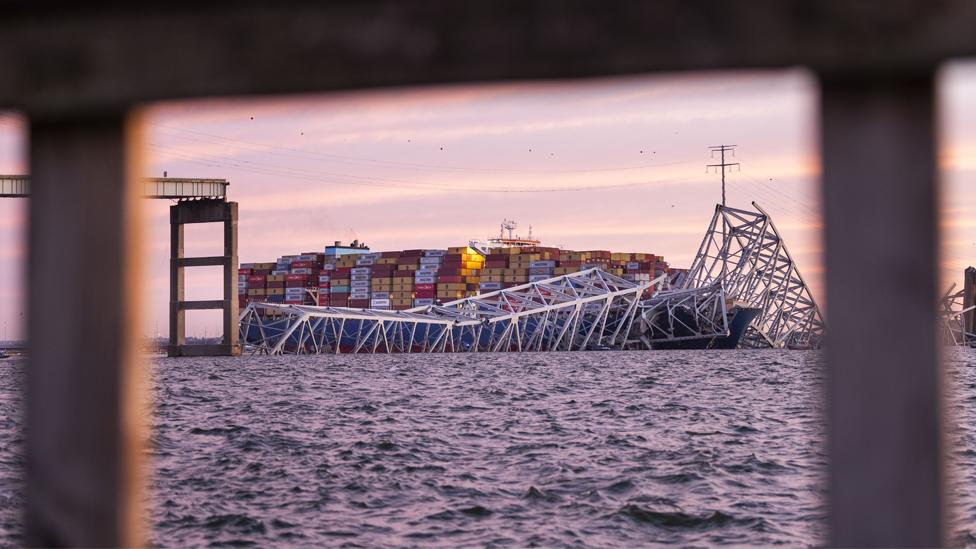Baltimore bridge collapse: What will happen to the 21 sailors stranded on the Dali?
- Published
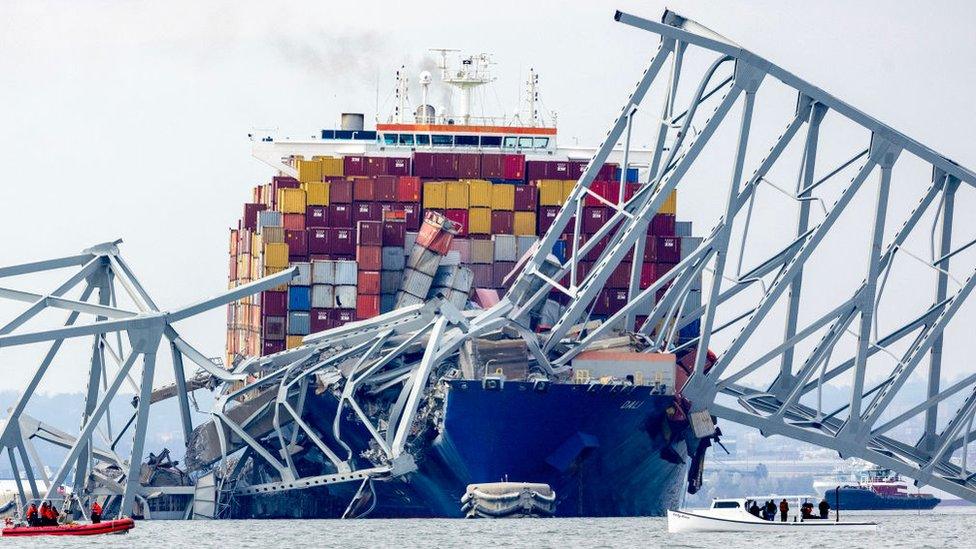
Only one crew member on-board the Dali was injured when Baltimore's Key Bridge collapsed.
Nearly a week after Baltimore's Francis Scott Key Bridge collapsed, almost two dozen sailors remain stranded on-board the vessel involved in the accident.
Most of the crew of the Dali, a 948ft (289m) container ship, are from India. One was slightly injured when the ship collided with the bridge.
Six people were killed in the collapse.
Investigators are working to determine exactly what caused the collision, and it is unclear when the crew will be able to leave the vessel.
Here's what we know about the men on-board the Dali and their current situation.
What do we know about the crew?
In total, 21 crew members were on-board the Dali at the time of the accident, which happened just minutes into the ship's 27-day journey to Sri Lanka.
India has confirmed that 20 of them are Indian citizens. Government statistics show that 315,000 Indians are employed in the global maritime industry, about 20% of the total. Indians are second only to Filipinos in the sector.
One crew member is from Sri Lanka, according to the US Coast Guard.
An Indian official said last week the crew are all in good health, including the one member with the minor injury, which required stitches.
Little else is known publicly about the crew, their background or their experience.
How are the crew members doing?
Among the few people to have been in contact is Joshua Messick, the executive director of the Baltimore International Seafarers' Center, a non-profit organisation that works to protect the rights of mariners.
Mr Messick told the BBC that he has exchanged WhatsApp messages with the crew after arranging delivery of a care package that included WiFi hotspots.
He described them as "rattled" and largely keeping quiet about their situation as the investigation unfolds.
"They're not saying much at all to anyone who has been in touch with them," Mr Messick said.
"They didn't have WiFi until Saturday and they didn't really know what the perception of the rest of the world was. They weren't sure if they were being blamed, or demonised. They just didn't know what to expect."
He added: "They are also in a very sensitive situation. What they can say can reflect on the company. I would imagine that they've been advised to keep a low-profile for the time being."
Andrew Middleton, who runs Apostleship of Sea - a programme that ministers to ships coming through Baltimore - said he has been in touch with the crew "several times a day" since the collision.
"They say that they are all well," he said.
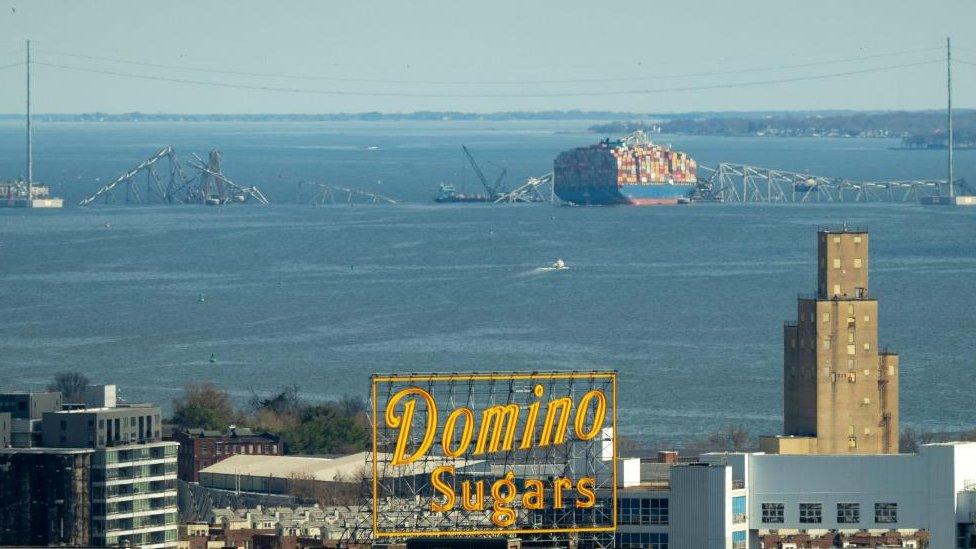
When will they be allowed off the ship?
Authorities have said that - for now - there is no plan to disembark the Dali's crew, who are still working to maintain the ship. It is unlikely they will leave the vessel until it is moved - a complicated and potentially long process.
On Friday, Coast Guard Admiral Shannon Gilreath said that moving the Dali is a secondary priority to re-opening the port of Baltimore and the shipping channel.
Even in normal circumstances, disembarking crews of foreign nationals from ships in US ports requires significant paperwork.
In addition to visas, the mariners need to have valid shore passes that allow them to get off the ship. They also need escorts to take them from the ship to the terminal gate, although that function can be performed by the various non-profits that work with mariners in the area.
It is unclear whether the Dali's crew have the required paperwork to disembark.
The unified command overseeing the response to the Baltimore accident told the BBC on Monday that it is unclear how long the investigation will last and "until the process is complete, the crew will remain on board".
Chirag Bahri, a veteran Indian seafarer who now serves as the international operations manager of the UK-headquartered International Seafarers' Welfare and Assistance Network, said that he believes it will likely be a matter of months until all the mariners are able to return home.
"Maybe after a few weeks, some of the junior ranks may be repatriated home," he said.
"But it may be that the senior ranks are still required to complete the formal investigation and are kept in the US."
What does the crew need?
The crew of the Dali is well-supplied with food, water and other supplies originally intended for their voyage to Sri Lanka.
The crew will also be able to receive packages from the non-profits that work with mariners, which Mr Messick said would include baked goods and other treats.
The more pressing needs are psychological, say Mr Messick and Mr Bahri.
The former said that combating tedium and boredom when not working is among the greatest challenges when seafarers are isolated for long periods. Many of the mariners - who are often young - will turn to video games and social media to pass the time.
"The happiest [ships] are the ones where the crew can come together and enjoy each other's company," Mr Messick said. "But that's not always the case."
Mr Bahri said he expects the crew will need mental health support in the wake of the incident and the intense media attention over what went wrong and who, if anyone, is to blame.
"Everyone is now trying to crack the case. That must stop," he said.
"The seafarers are likely already traumatised and stressed. They are still on a ship in a foreign land. We should stand by them and make them feel confident they will not be judged in this hour of need."
Related topics
- Published26 March 2024
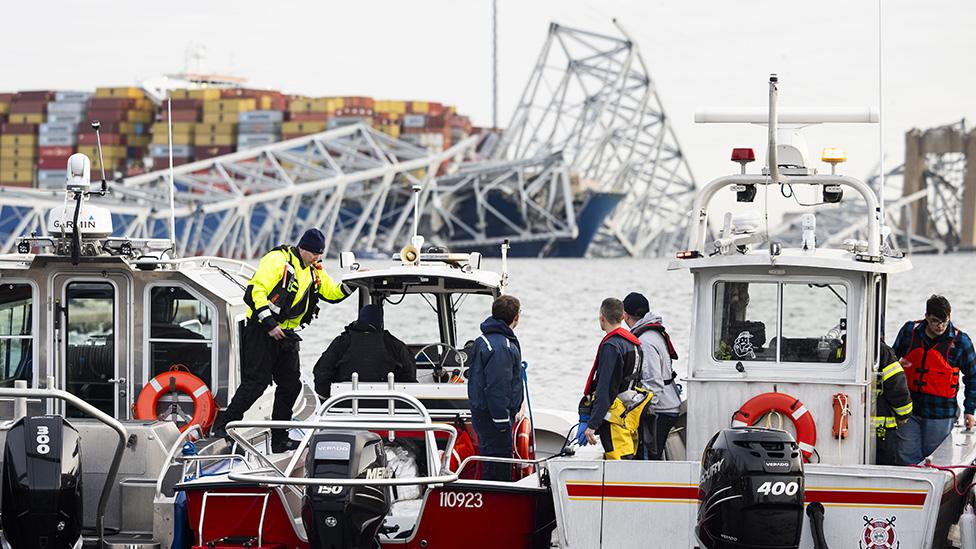
- Published7 May 2024
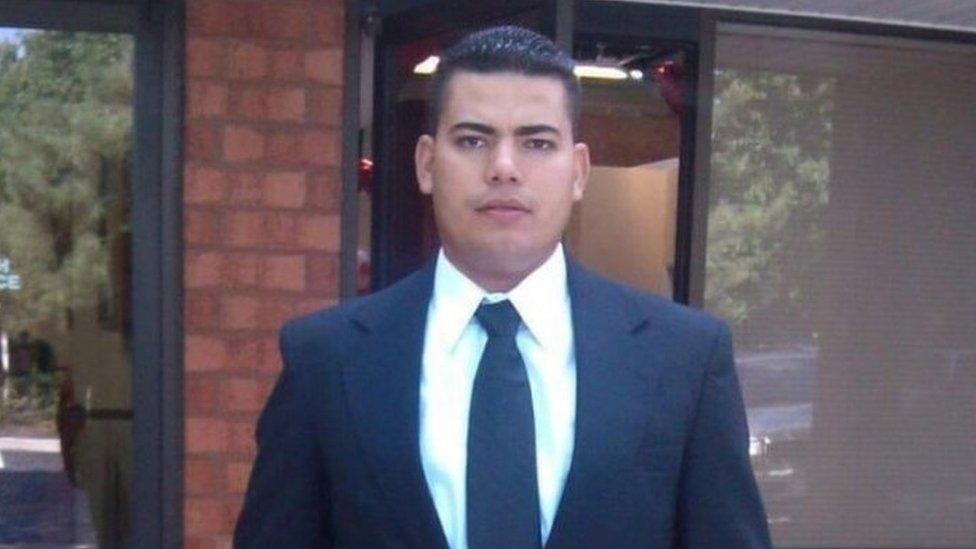
- Published26 March 2024
